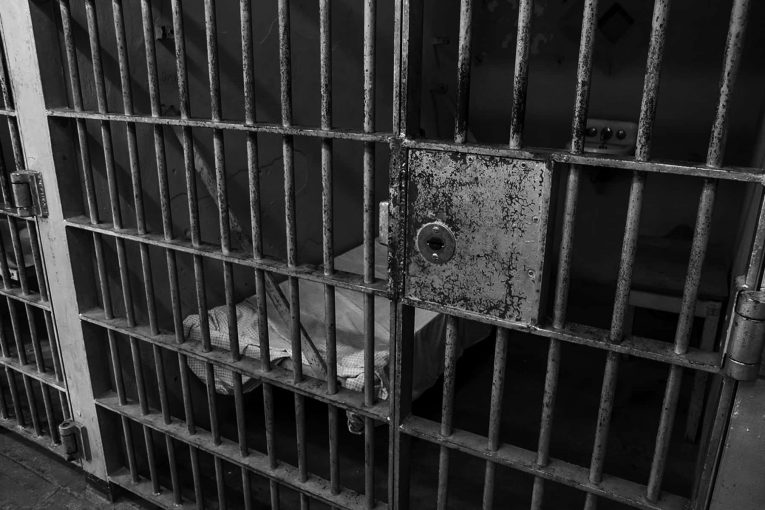

 By Hubert Dymitr Haraszewski
By Hubert Dymitr Haraszewski
As an incarcerated out and proud anarchist, other inmates sometimes ask about my belief that prisons should not be reformed but instead abolished entirely. These conversations usually feel more like challenges than sincere exchange of ideas; like opportunities for the person asking to demolish a series of straw men and flex their cognitive behavioral and parole board bona fides. The fact is, despite an abundance of Circle-A tattoos, prisons tend to be curiously conservative places dominated by system justifiers and authoritarian mentalities- in guards and inmates alike- where the captives come to internalize their oppression and identify with their badge-brandishing victimizers. It’s hard to assign blame in this; after all, psychoanalysts from Freud to Wilhelm Reich and beyond described the human tendency to conform to mentalities of those who give us the attention we naturally crave, and Stockholm syndrome is perpetually re-confirmed among hostages of sorts from battered wives to political prisoners. While this train of  thought may lead to an interesting digression, it’s one that is probably left for another essay focused on the soul-crushing CBT schemes our captors label prisoner rehabilitation. For now, we’ll just deal with prison abolition as a social and moral imperative.
thought may lead to an interesting digression, it’s one that is probably left for another essay focused on the soul-crushing CBT schemes our captors label prisoner rehabilitation. For now, we’ll just deal with prison abolition as a social and moral imperative.
The first thing most people ask when they hear of abolitionists who categorically oppose human caging is “But then what will we do with all the bad people?” This false dilemma is then often buttressed by an emotional appeal, as when a convicted criminal adds, “…You know, someone like me?” With no satisfyingly simplistic answer to this question, the common attack against abolition then becomes an objection that trying to eliminate prisons is unrealistic and even downright irresponsible in the absence of a clear plan for what we would “put in their place.” When I feel particularly snarky, I reply “Well what do you think we should replace cancer with when we remove it?”
Flippant, reactionary dismissals of abolitionism typically assume that abolitionists are just nihilists who want to demolish prisons (perhaps even using the rubble for something socially useful like filling potholes) while leaving intact the entire social structure in which those prisons grew and flourished. But no one is that naive and abolition must not be understood as a purely destructive enterprise but rather a fundamentally constructive one. Those who advocate eliminating prison also want to radically re-imagine and reconstruct the elements of society that made prisons seem so necessary in the first place. Prison abolitionists may recoil from prison reform but we aren’t militant anti-reformists either…we simply choose to focus on reforming the deeper roots of the discontent and dissociation that lead to most individual and collective harms. Abolitionists don’t want to waste time trying to reform the mere symptoms of dehumanizing systems, symptoms like prisons, while those symptoms shield themselves from criticism with their ceaseless, distracting squawking about crime and the spectacle of state-imposed punishment. We must remember that reform implies a desire to improve something we wish to retain, and the last thing any humane society needs is a “better,” more acceptable, more invisible warehouse to stash away inconvenient human beings.
In her book We Do this ‘Til We Free Us, Mariame Kaba notes that abolitionists do not bear the burden of presenting a fully-formed blueprint for precisely how prisons will end and what will be done with the purportedly “dangerous people” before we can condemn obviously calamitous institutions. People regularly acknowledge the need to eliminate harmful things from their lives, then move to do so without knowing the ramifications. For example, we do not try to imagine and preemptively counteract every imaginable consequence before we yank our hands from painfully hot objects though there may be unintended effects that could have been avoided with a bit more thought. That is precisely abolitionism’s point; if we squarely acknowledge the catastrophe of prisons then we can—and we must—begin to think seriously and begin creating a world where we would never again be burned by the allure of human caging -much less by the social and economic conditions that tricked us into believing we had no choice but to invent and embrace the gulag in the first place.
Incidentally, when inmates ask what my abolition says about how they should have been handled in the depths of their addictions and antisocial destructiveness, I usually ask them back, “How long did prison exist before your little reign of terror? And if prisons are so effective and necessary for preventing crime then how did they fail to stop you?” Turns out, not many people ask themselves this before. The movement for prison abolition proposes that now that we have the thought of the question we should keep it at the forefront of all our thinking about the presumed value and necessity of incarceration as punishment.
